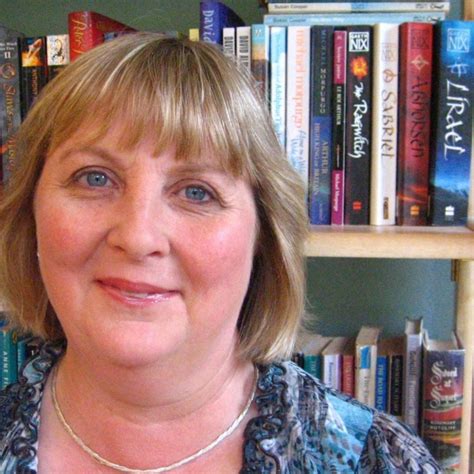A Quote by Gregory Doran
I was doing an interview with Charlie Rose and he said, "What do you think about Margaret Thatcher?" - and I had not heard she had died at this point - and he said, "Is there any kind of Shakespearian overtone here?" I said, "Well, actually, Julius Caesar, because ever if a politician was stabbed in the back, it was Mrs. Thatcher, by all her conspiratorial cabinet, which really did just stab her in the back." It's a rather interesting resonance.
Related Quotes
Media hosts just talk about Golda Meir and Margaret Thatcher and again miss the point. I was talking about AMERICAN culture, ladies and gentlemen. As I pointed out, if Margaret Thatcher or Golda Meir, by the way, she didn't care, and Margaret Thatcher didn't care how she look like. If Margaret Thatcher were running for president today, as she was when she was the Iron Lady, we wouldn't have her mom doing television commercials telling us how wonderful she was when she was a kid and how nice she is.
We have a number of very powerful women in the world now - Mrs. [Angela] Merkel, who the Germans call Mutti. What did we call Mrs. [Margaret] Thatcher? When she was minister of education, she stopped the children's free school milk. This may sound quaint, but after the war we were such a malnourished nation that part of the founding of the welfare state were public health initiatives. Every little schoolchild got milk. Mrs. Thatcher stopped it. They called her "Maggie Thatcher, milk snatcher."
I'll just be your brother from now on." he said, looking at her with a hopeful expectation that she would be pleased, which made her want to scream that he was smashing her heart into pieces and he had to stop. "That's what you wanted, isn't it?" It took her a long time to answer, and when she did, her own voice sounded like an echo, coming from very far away. "Yes," she said, and she heard the rush of waves in her ears and her eyes stung as if from sand or salt spray. "That's what I wanted.
The world taught women nothing skillful and then said her work was valueless. It permitted her no opinions and said she did not know how to think. It forbade her to speak in public and said the sex had no orators. It denied her the schools, and said the sex had no genius. It robbed her of every vestige of responsibility, and then called her weak. It taught her that every pleasure must come as a favor from men and when, to gain it, she decked herself in paint and fine feathers, as she had been taught to do, it called her vain.
The flat tax I got on my first meeting with Margaret Thatcher, who I admired very much and who was a great admirer of Milton Friedman. I met her first when I had been prime minister I think for some months and so on, and when I told her what I am planning to do, she looked at me with these big eyes and said: "You are one brave young man." And then a little bit introduced me on the realities of the Western world on which I was not very well informed. But I didn't stop.
We said we would meet again but we made no arrangements. Not out of any bad feeling between us, but because I felt it had all been said, or not said but understood, and she probably did too. To know she was there was enough, and for her to know I was around was probably too. Sometimes that's all people ever really need. Just to know.
"She (Minnie Ruth Solomon) was unusual because even though I knew her family was as poor as ours, nothing she said or did seemed touched by that. Or by prejudice. Or by anything the world said or did. It was as if she had something inside her that somehow made all that not count. I fell in love with her some the first time we ever talked, and a little bit more every time after that until I thought I couldn't love her more than I did. And when I felt that way, I asked her to marry me . . . and she said she would."
One of the things I've learned from 'Borgen' is that it's very easy to criticise people; 'I hate this politician, I hate what they do.' You are doing this right now with Margaret Thatcher, but sometimes it's hard to be a politician. I'm not defending Margaret Thatcher, but we believe our statesmen are also human beings.
I had dinner with Marlene Dietrich in the early 1970s. I went to pick her up and she had someone with her, a dreadful man. He was writing a book about her, and he said to her, 'You're so cold when you perform,' and she said, 'You didn't listen to the voice.' She said the difficulty was to place the voice with the face.



































